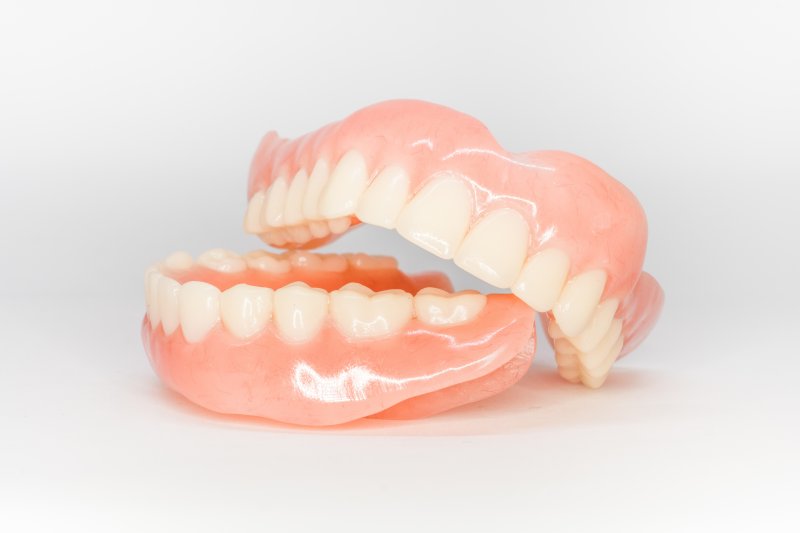
Dentures offer patients a new way of life that is far better than the struggles they once faced when dealing with tooth loss. However, these prosthetics do not always provide the comfort and stability needed. As changes to a person’s facial shape occur, these artificial teeth can become more of a nuisance than a blessing. If you are dealing with ill-fitting dentures but are not sure what you should do, keep reading to learn what kind of problems can arise and how your dentist can help.
What Complications Are Common with Dentures?
At some point, all denture wearers experience complications brought on by their ill-fitting artificial teeth. For some, it may take years, while others may struggle from the very beginning. The important thing to remember is that the earlier you notice the problem, the sooner you can get the help you need from a trusted dentist.
Here are some of the most common issues you might experience with ill-fitting dentures:
- Difficulty Speaking: You will quickly notice that your speech is less clear and more jumbled when your dentures do not fit properly. This can cause you to become self-conscious about your smile when around others.
- Gum Inflammation: As your dentures continue to rub against your gums, the tissues will become inflamed, resulting in potential damage or bleeding.
- Oral Soreness: Your gums and jawbone are likely to become sore if your dentures do not fit well. Your attempt to wear them can cause discomfort and sensitivity, and your gums will remain irritated longer.
- Difficulty Eating: Dentures that do not fit properly can make it harder to eat the foods you love. They may slide around inside your mouth, or food may become trapped between your dentures and gums, causing an increased risk of gum disease if left untreated.
How Can a Dentist Help?
Ill-fitting dentures are not an uncommon complaint among denture wearers, which is why dentists offer solutions designed to address this problem.
The most common treatment method is denture relining. As soon as you notice a change in how your teeth fit and feel, bring them in to have your dentist resurface the portion that touches your gums. The additional padding will provide greater comfort, reduce inflammation and injury, and improve your ability to eat and speak.
Another option is to have them replaced. If your dentist believes a reline will not be enough to achieve the necessary fit for improved oral function and health, you may need to have new ones created. However, if this doesn’t sound like something you want to pursue, you can ask about switching to implant dentures – prosthetic teeth that are held in place by titanium posts that are surgically positioned within the jawbone.
You have options when it comes to dealing with ill-fitting dentures, but the most important realization is to seek help as soon as you notice a problem. Doing so will allow you to enjoy a pain-free, healthier smile.
About the Author
Dr. Heliben Desai is a trusted dentist with more than a decade of experience. She completed her Doctor of Dental Medicine at Rutgers School of Dental Medicine in 2014. At Care 32 Dental, she and her fellow dentists are pleased to provide denture services to patients dealing with tooth loss. As removable prosthetics that require replacement and relining every few years, she can provide the solutions needed to keep denture wearers happy so they can enjoy life with a comfortable smile. If you are experiencing problems with your artificial teeth, contact us at (817) 741-1300 to schedule an appointment.
